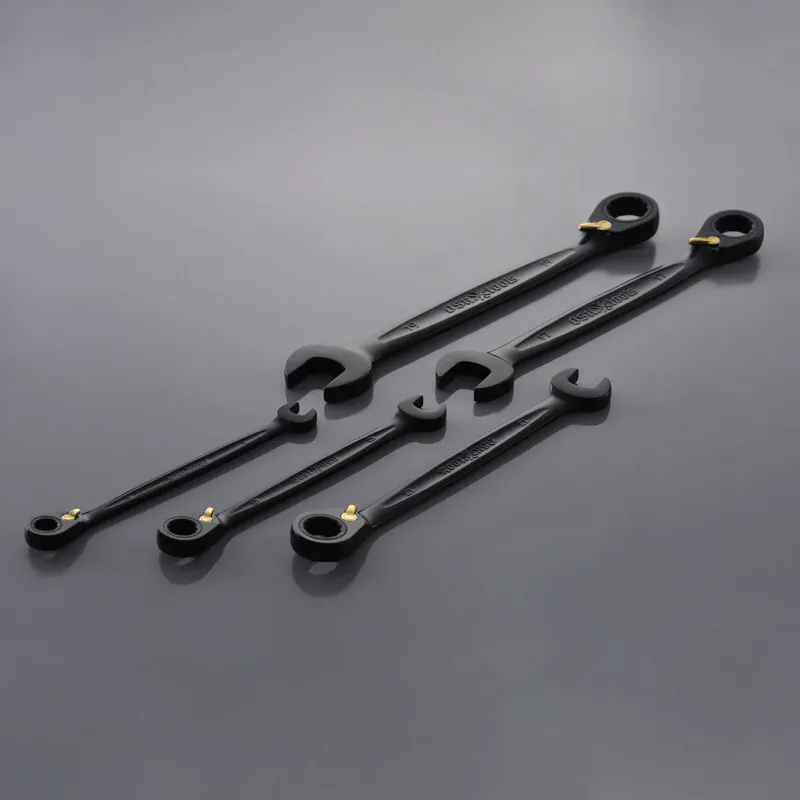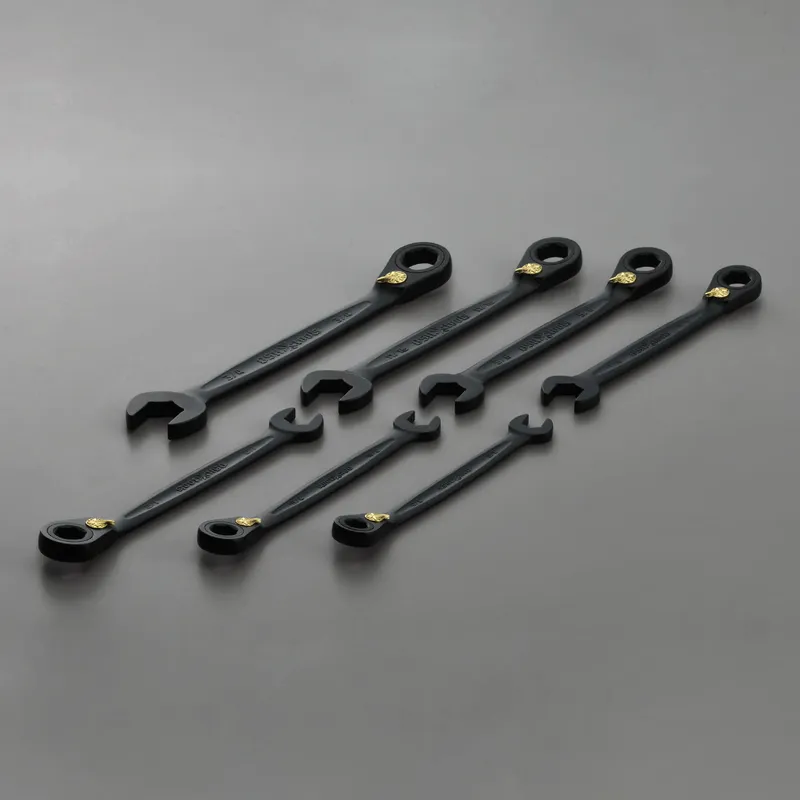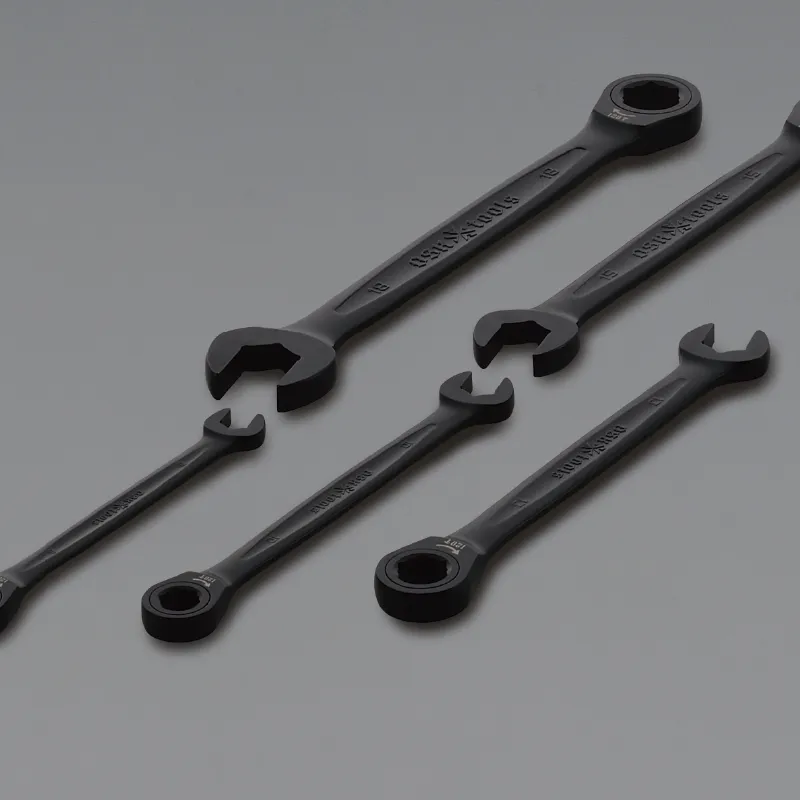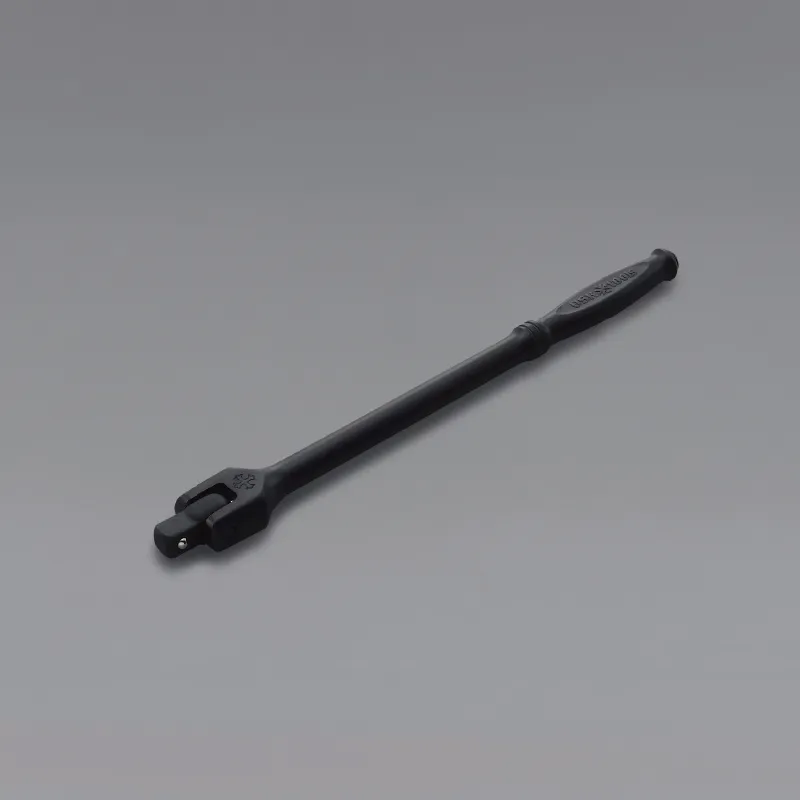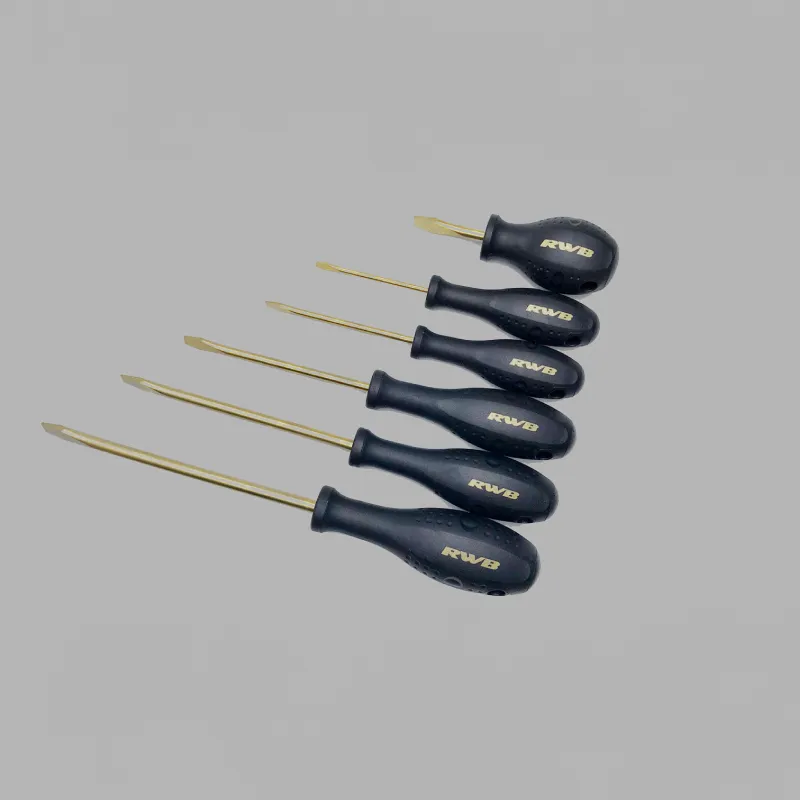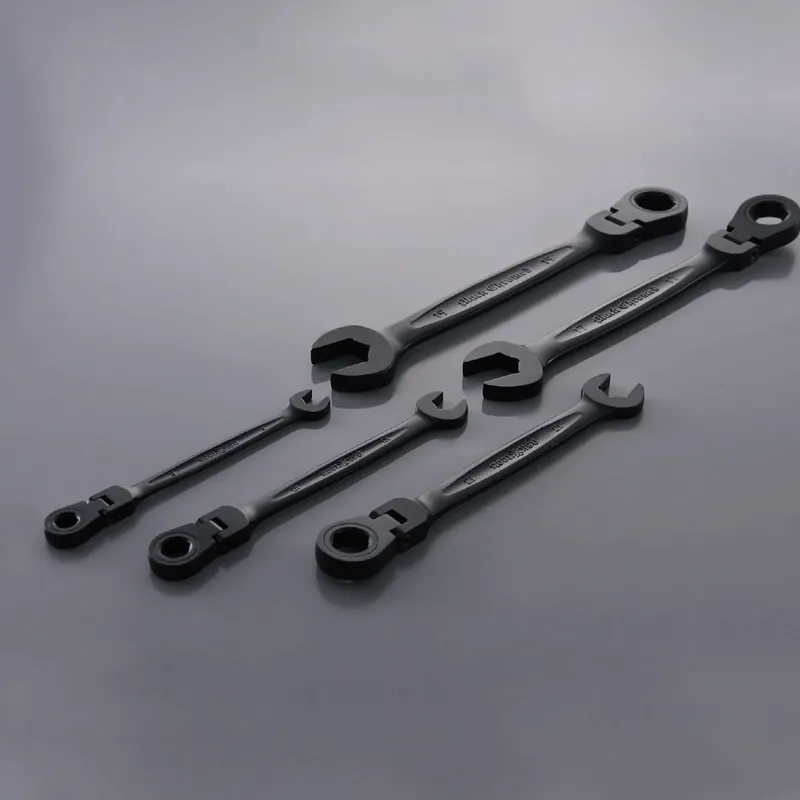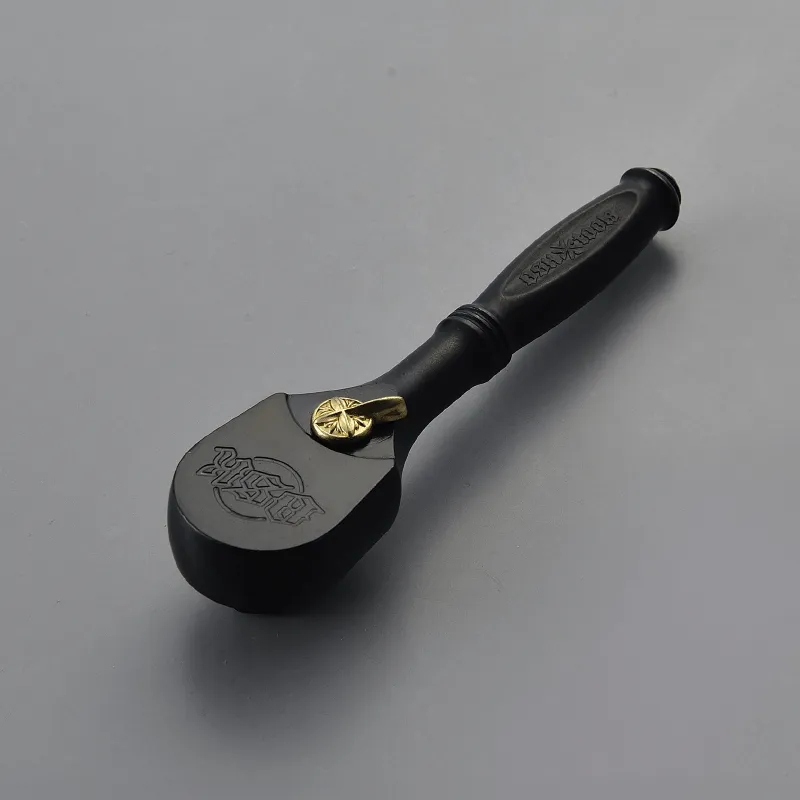
Ratcheting wrenches are indispensable tools in any mechanic's toolbox, prized for their ability to tighten or loosen fasteners with ease. However, there are times when these tools may fail to operate as expected, leaving users frustrated and uncertain about the cause. Understanding why a ratcheting wrench might stop turning is essential for diagnosing and fixing the problem.
Table of Contents (Click to read this paragraph)
- Why doesn't ratcheting wrench turn? 3 reasons to explain▼
- Ratcheting wrench recommendation: 【OSK Hand Tools】 100% pure black chrome coating for slip-resistance and durability▼
Why doesn't ratcheting wrench turn? 3 reasons to explain

In this article, we will explore three common reasons why a ratcheting wrench may not turn: a damaged ratchet mechanism, insufficient lubrication or contamination, and overuse or wear and tear. By identifying these issues, you can ensure your wrench remains in top working condition.
1.Damaged Ratchet Mechanism
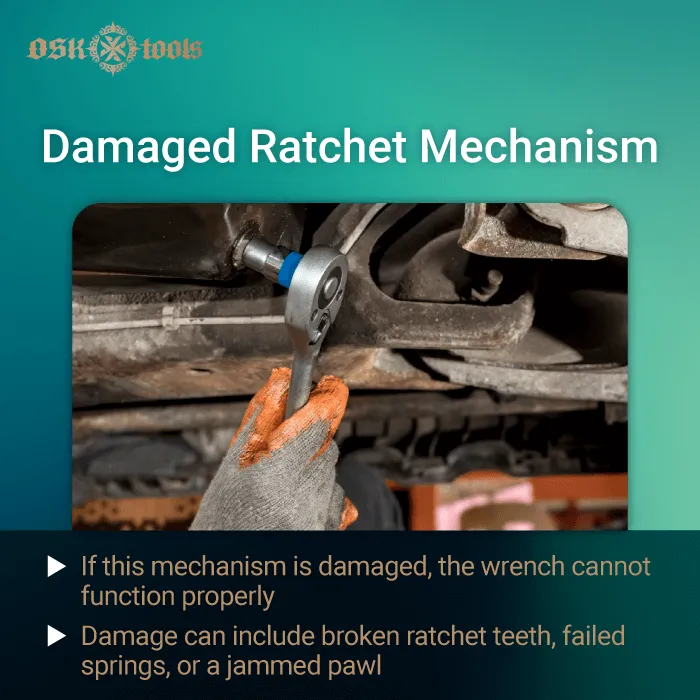
The ratchet mechanism is the core component of a ratcheting wrench, enabling it to rotate in one direction while locking in the other. When this mechanism is damaged, the wrench cannot function properly. Common types of damage include broken ratchet teeth, which prevent the mechanism from engaging as it should, and failed springs, which result in a loss of tension on the pawl, leading to slippage or a complete failure to lock. Additionally, a jammed pawl can occur due to debris or misalignment within the mechanism, further inhibiting the ratchet's ability to turn. These issues directly affect the performance of the wrench, making it difficult or impossible to tighten or loosen fasteners. To address a damaged ratchet mechanism, it is crucial to regularly inspect the internal components of the wrench, especially after heavy use. In cases where damage is visible, replacing the affected parts or the entire wrench may be necessary to restore functionality.
2.Insufficient Lubrication or Contamination

For a ratchet wrench to operate smoothly, proper lubrication is critical. Lubrication minimizes friction between the moving parts, allowing the ratchet mechanism to function seamlessly. However, if lubrication is insufficient, the wrench may become stiff or difficult to turn. Contamination of the lubricant with dirt, debris, or metal shavings can also introduce friction, further impeding the wrench's performance. Regular cleaning and proper lubrication are necessary to prevent these issues and ensure the wrench operates efficiently.
Further reading: How to grease a ratcheting wrench? 4 steps explain
3.Overuse or Wear and Tear
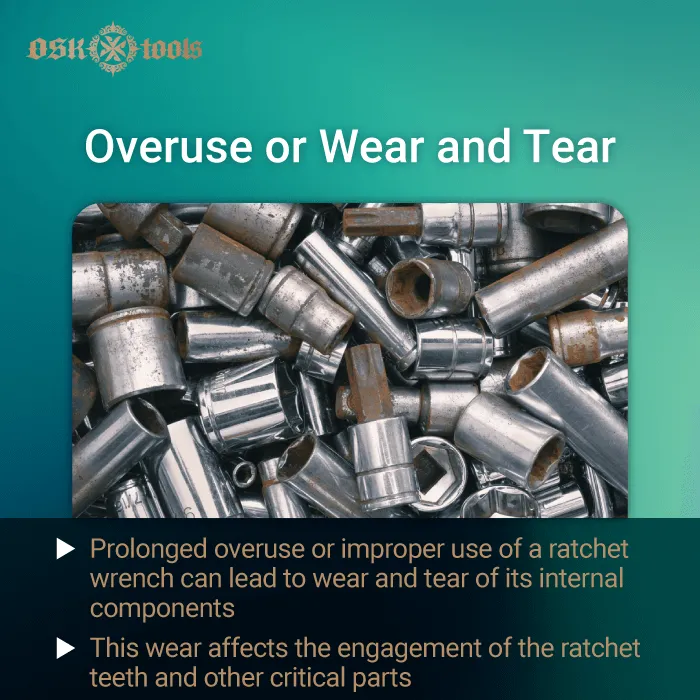
Like all tools, ratcheting wrenches are susceptible to wear and tear, particularly when used extensively or improperly. Over time, the engagement between the ratchet teeth and the pawl can degrade, leading to slippage or failure to engage properly. This wear can be the result of prolonged use without adequate maintenance or from misusing the wrench, such as applying excessive force or using the tool on fasteners that are too large or small for its design. To mitigate the effects of wear and tear, it is crucial to perform regular inspections and maintenance. Checking signs of wear, such as rounded teeth or a loose pawl, can help users identify problems early and address them before they cause significant damage. Replacing worn parts promptly can extend the wrench's operational life and ensure it continues to function effectively. Additionally, using the wrench within its intended specifications and avoiding excessive force can help prevent premature wear.
Further reading: How to maintain ratcheting wrench? 3 point you must know
Ratcheting wrench recommendation: 【OSK Hand Tools】 100% pure black chrome coating for slip-resistance and durability
In conclusion, a ratcheting wrench that fails to turn can be traced to several common issues: a damaged ratchet mechanism, insufficient lubrication or contamination, and overuse or wear and tear. By understanding these problems and taking proactive steps to address them, users can ensure their tools remain reliable and efficient. Regular maintenance, proper use, and timely repairs are key to maximizing the lifespan and performance of ratcheting wrenches, making them valuable assets in any mechanical toolkit.
For those in search of a high-quality ratcheting wrench, the 【OSK Hand Tools】 model stands out due to its 100% pure black chrome coating. This exceptional coating not only provides outstanding slip resistance for enhanced grip but also ensures long-lasting durability. Notably, this wrench has successfully passed the rigorous 96-hour salt spray test, demonstrating its superior resistance to corrosion and wear. With the 【OSK Hand Tools】 ratcheting wrench, you can confidently tackle any job, knowing that your tool is built to withstand the elements and deliver reliable performance over time. If you have wrench needs, head over to the wrench section now to make your purchase!
Released on 2024-08-09|Last updated on 2024-08-15 | 1442
OSK Tools-Wrench Brand
Phone: +1 949 372 2831(Click to call)
Facebook:OSK Tools(Click to visit)
FB Messenger:OSK Tools(Click to DM)
Service Time: 09:00-18:00 on weekdays










